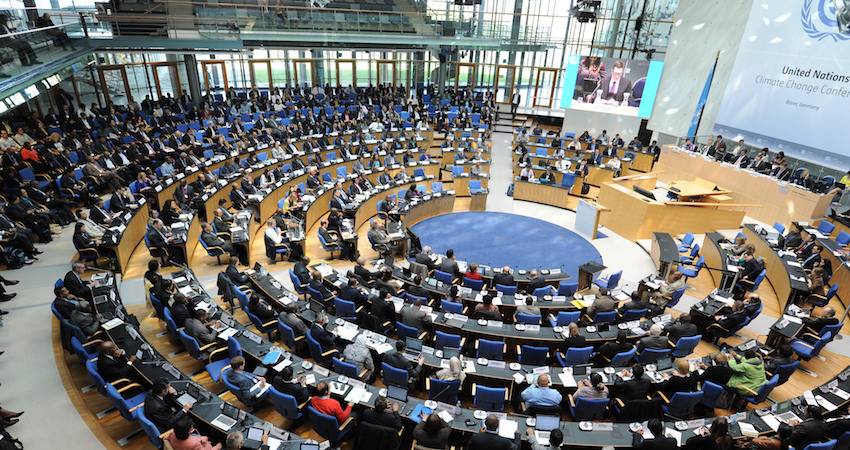By Arthur Neslen, Climate Home News
Business lobbies in Europe and the US are pushing for a distinct, direct and formalised “business channel” into UN climate negotiations.
In a submission to UN Climate Change’s Subsidiary Body for Implementation (SBI) on 30 January, Business Europe, which represents industry confederations in 28 EU states, called for a conduit to the top table.
This would be “pivotal” to the cycle of reviewing national climate pledges that was established under the Paris Agreement, the document argues.
“We feel that there are many good business ideas to tackle climate change that might not always be reaching negotiators,” the group’s communications director, Peter Sennekamp, told Climate Home News.
“It would be helpful for negotiators to have a direct contact with business representatives in a more formal matter. Therefore, to assure that information reaches them in a timely and consistent manner, we believe that having a recognized focal point is crucial.”
BusinessEurope’s submission resembles a Ukrainian proposal for bringing energy corporates into UN climate talks that Climate Home revealed in November.
Transparency campaigners oppose giving business interests closer access to the talks, however, seeing them as a barrier to ambition.
Jesse Bragg, a spokesman for Corporate Accountability, described the proposal as “giving the fox a doggy door to the hen house”.
“Groups like Business Europe have long fought to insinuate themselves into climate policymaking in order to undermine it and direct it toward the financial interests of its members,” he said, adding that conflict of interest issues would be “front and centre” at the next interim climate conference in Bonn this May.
“Those responsible for the climate crisis should not be writing the rules for how we address it,” Bragg said.
The US Council for International Business (USCIB) made a similar argument to Business Europe in a submission filed on the same day.
USCIB called for recognition of a “channel for business, focused on the advice, expertise and capabilities that are distinct to business, built on the model of other such consultative bodies, for example the International Organization of Employers (IOE) and the Business and Industry Advisory (BIAC) Committee to the OECD.”
BIAC boasts of providing “access to high level OECD meetings, forums and discussions on leading matters that impact businesses globally” and also “strategic counsel on major policy decisions, peer reviews and key OECD policy instruments”.
USCIB is a US affiliate to both BIAC and the IOE, where it promotes free trade.
Sennekamp denied coordinating with the US group on Business Europe’s latest submission, with the caveat that “we of course speak to many of our counterparts”.
This article originally appeared on Climate Home News.
Business Europe submission to UN climate talks by Megan Darby on Scribd
Image: UNClimate CC 2.0
Subscribe to our newsletter
Stay up to date with DeSmog news and alerts







